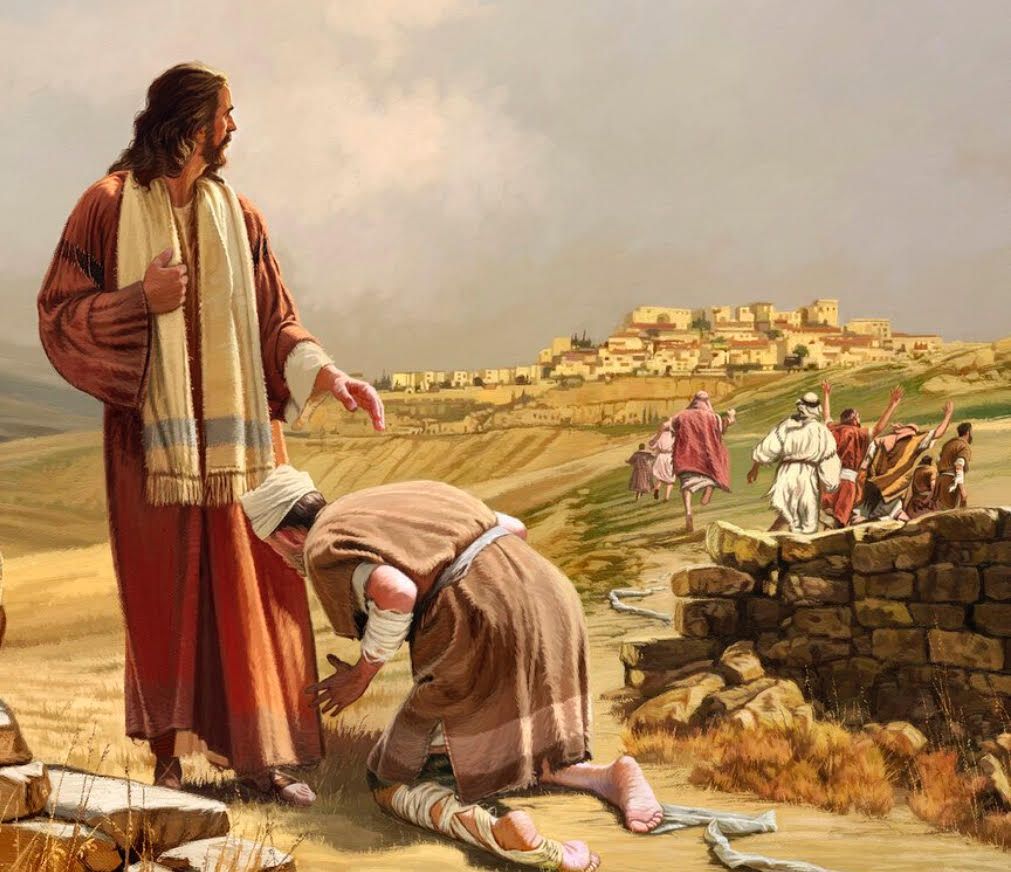28th Sunday in Ordinary Time
October 9, 2025
Gospel Reflection
Luke 17:11-19

Both the first of today’s readings and the Gospel passage deal with persons miraculously cured from one of life’s worse scourges—leprosy. However, the lesson to be drawn is not about how miracles can happen. It is about discovering the true God who can do miracles, beginning with the miracle of the universe and of our own existence. Naaman was a Syrian military chief afflicted by leprosy. A young Jewish girl, captured in an invasion, served in his household. Moved by pity over the state of her master, she told him of the great Jewish prophet Eliseus, who was known to perform miracles by God’s grace. In desperation, Naaman undertook a journey to seek him out. Once there he had to overcome his pride and scepticism to follow the simple instructions of the man of God. And so he was cured. More importantly, he came to recognize that the God of Israel was the one true God. From then on it would be this God that he worshipped.
The New Testament recounts several cures of lepers by Jesus. Luke is the only evangelist who records the incident of ten lepers all cured on the same occasion. All these men have sought Jesus out in their desperation. All showed themselves prepared to follow Jesus’ simple instruction. All were cured on the way to present themselves to the priests. Once there, all but one left it at that, no doubt overjoyed at their regained health. But were they the wiser and the better for it? Nothing more is said about them. There was one out of ten, however, who was the wiser. He went out of his way to show his gratitude by returning to Jesus and acknowledging before others what had happened. He was a Samaritan and, therefore, a foreigner as far as the Jews were concerned. But he had found faith in the true God. He, like the others, had been cured of a terrible illness. Now he alone, it would seem, had taken up the path to entry into the new People of God. It was this latter blessing that was the greater—to know and be devoted to the true God.
It is possible for a person to go not much farther in their faith than seeking from God protection from various ills and the securing of certain advantages in life. Faith ought to lead us to the God behind the gift, because He is the ultimate Gift, whether or not his presence be constantly felt and consoling. This ought to be the great hunger of our spiritual life—to know Him, and to love Him, with the loyalty of our life of worship and with our daily effort to live with a Christian outlook on life. Many people admired Mother Theresa for her tireless work on behalf of the poorest of the poor. To these people, and maybe even to us, this service seemed to be the eloquent lesson of her vocation. It was truly an extra-ordinary testimony to an essential part of the Gospel message. However, what was an even more important testimony in Saint Teresa of Kolkata‘s life was the quest for God and the yearning to contemplate the face of Christ. Her deepest conviction was that knowledge of and possession of God was the most important outcome of our existence. Though this should require sacrifice and even prove arduous, nothing less could satisfy the heart of man or woman, who are made for God.


